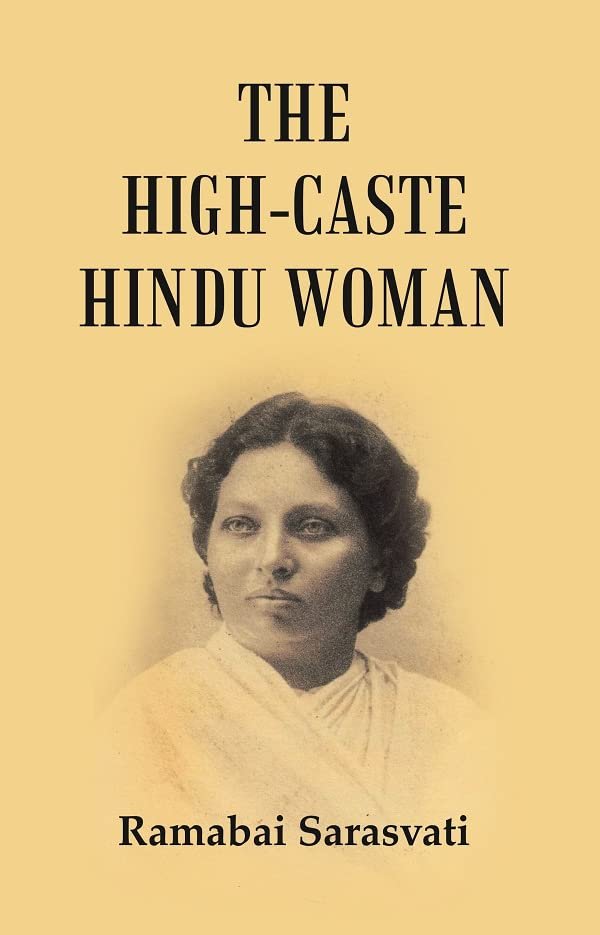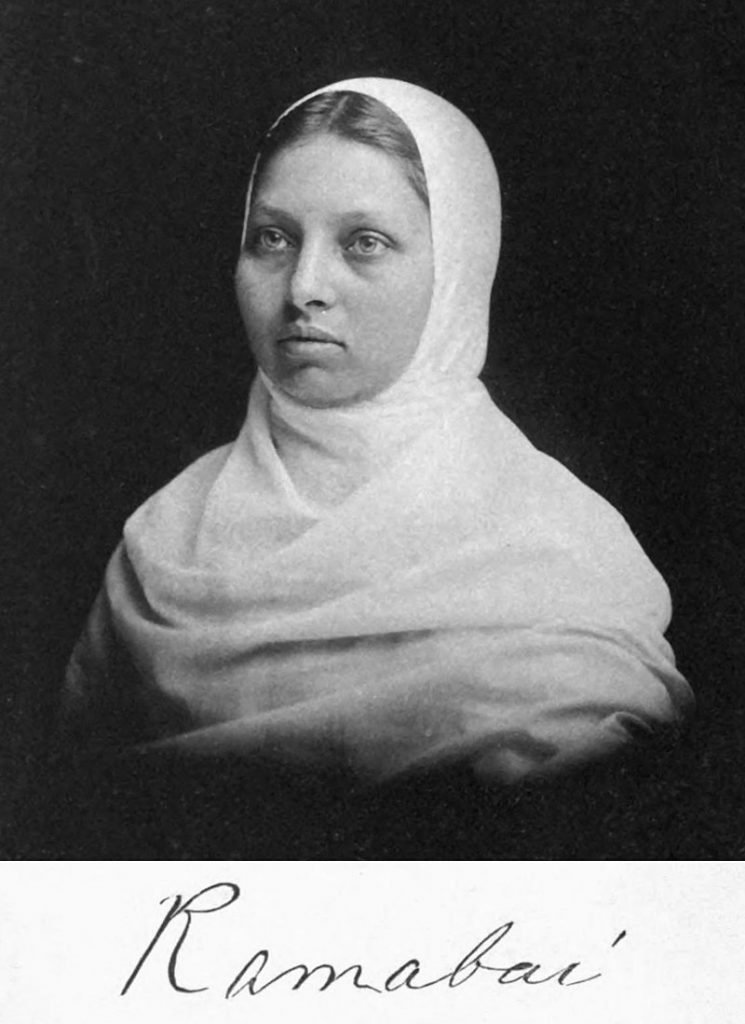
The High Caste Hindu Woman, which, according to her beliefs, “showed” the darkest aspects of the life of Hindu women, including child brides and child widows, sought to expose the oppression of women in Hindu-dominated British India. In 1896, during a severe famine Ramabai toured the villages of Maharashtra with a caravan of bullock carts and rescued thousands of outcast children, child widows, orphans, and other destitute women and brought them to the shelter of Mukti and Sharada Sadan.
Pandita Ramabai Sarasvati (1858-1922) was an Indian Social Reformer. She was the first woman to be awarded the titles of Pandita as a Sanskrit scholar and Sarasvati after being examined by the faculty of the University of Calcutta. She was one of the ten women delegates of the Congress session of 1889. In the late 1890s, she founded Mukti Mission at Kedgaon village, forty miles east of the city of Pune. The mission was later named Pandita Ramabai Mukti Mission.

